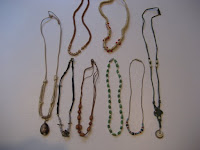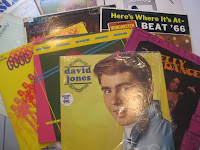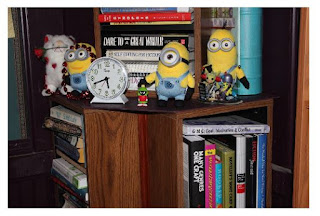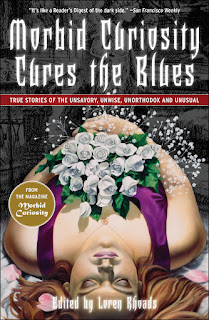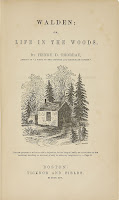While you work on stopping — or at least slowing down — the accumulation of items, let's look at why they are never where you expect them to be.
There's No Place to Put Things
You need to get rid of some things or you need to find a bigger place. Or both. This blog will try to address both, eventually.
For now, pick one area that's a real problem for you. Clothes? Remember my comment that some people keep buying tee shirts when they already have enough to clothe a third-world country? Maybe you think that's not you.
Okay, try this. Go through your room, apartment, house, whatever, and grab every tee shirt you own, clean or dirty, and put it on the kitchen floor. (Uh, maybe you should vacuum first?)
Make only two piles: Clean and dirty. (Yes, I want you to go through your laundry bag.) Look everywhere: Your dresser drawers, your closets, your gym bag, your suitcase, under the couch, behind the couch — everywhere. Don't stop until you've made sure that you have every last one. And don't just eye the closet. Pull everything out! Open boxes! Look on hangers.
When you're finished, count the total number of tee shirts in both piles. Now, if you wear a clean shirt every day, how many days of clean tee shirts is that? A week's worth? A month? A year?
How many still fit? How many still fit
well? How many are faded, stained, ripped? Why are you keeping them? If they're faded, stained, or ripped, but they have strong emotional ties, here are some ideas:
- Take pictures. You're going to hear me say this a lot, but it's true. Take pictures and write a description of where you got each one, when, who you were with (was it the first time you went to a concert without your parents?), and any other interesting details. If you're a writer, maybe you want to describe the fabric, the color (the color in photos isn't always true), how it felt (was it thick cotton, or a soft blend?), maybe the size or style (was it back when shirts ended at the waist, or mid-thigh?).
- If you're good with photo manipulation programs, make a cool collage of the tee shirts. Post it on your web site or Facebook page. Or print it out and see if it can stir a remembrance or inspire a short story.
- Know someone who's crafty? Are you crafty yourself? Cut out the good bits and make a quilt or pillow. Check out these cool ideas from Instructables. Or cut out the best part of the tee shirt and make it into an applique for a canvas tote bag. Stretch it over cardboard or frame it.
Now you're down to those that aren't faded, ripped, or the wrong size. Is it still a manageable number?
You Misplace Things Because You're Too Scattered
You have triplets, two jobs outside the home, and you're the president of the local writer's association. You exercise two hours a day and make meals from scratch. Your wife's mother is staying with you while she recovers from hip surgery. Sounds like you need to declutter your
schedule. Start thinking about that. I've got some ideas on that for later.
You Keep Misplacing Things Because You Don't Have a System
Unfortunately that annoying adage we heard as a child, "A place for everything, and everything in its place" does have some value. Maybe you never bothered with getting organized before because you knew where everything was.

Well, that was
before: Before you had enough income to buy Stuff. Before you had a million other things crowding your mind that were more important than where you put the pack of pens. Before you started getting — ahem — older, and lost that wonderful memory that you had as a young adult.
You're the Only One in Your Household with a System
If there is more than one of you in the household, maybe you're not the problem. Maybe you have a perfect system, but no one else follows one. Maybe you're the one who picks up after everyone.
I once heard a mother say that she made her teenager's bed because her daughter "didn't do it right." I'm not a mom, so you'll probably laugh at what I'm going to suggest, but I'm going to suggest that you make them do their part and you put up with the bed not looking exactly perfect or them not always remembering which drawer the screwdriver goes in. If they don't get in the habit now, you're giving them the gift of being a clutterbug when they leave the family home. I doubt they'll thank you for that.
I know, I know, it's hard, so hard, being a parent. You've got a lot on your plate. But if you keep doing things for your child, you're adding more to your own plate and you're making it harder to keep things under control. Just try to get them in the habit, and don't stress if you're not successful. Baby steps.
If, on the other hand, you're a parent who has dealt with this successfully, maybe you could leave some tips or suggestions in the Comments at the bottom of this page. I know some of you must have found a system that helps.
You Just Can't Throw it Away
Maybe the main reason you can't find anything is just that you have too much stuff because you just can't throw it away.
I came to some of the same conclusions that Justine did in her guest post
The Socioeconomics of Clutter, though I'm sure I won't relate them as eloquently. Did your father "come from poor" and your stepmother raise five children during the depression? Did you pick up the packrat-itis from them because they drilled it into you with "You never know when you'll need it"?
This one is a hard one to deal with. Some of the ways I'm dealing with it is by being realistic, a suggestion from Dear Hubby. Let's say that I discovered that I have 71 pens in the house. I'm a writer, so it's realistic to assume that I will always need a pen one day. But how long does a pen last? (If you want, do an experiment: Use only one pen, a new one, which you mark with tape so you know which one it is. Keep it in your pocket or bag. How long does it last?)
Let's just say a pen lasts a month. That's 12 per year. Those pens will last you almost SIX YEARS. What will be the condition of the ink at the end of six years? Will it flow smoothly, or be so sluggish your hand cramps while you drag it across the page? What are the chances that some new pens will come out, some that you are dying to try, that flow better, fit in your hand better, or have some new feature we can't even dream of now?
Maybe the reason you can't throw things away is that you're living in the past. When you grew up, there weren't many shops nearby, and they were closed on Sundays. There was no online shopping with next-day delivery and mail order took forever. So you keep a stash of all-occasion cards just in case you forget to buy Aunt Tilly a birthday card and the shops are closed. You keep fancy paper and blank notecards because long-distance phone calls were too expensive and that was the only affordable way to keep in touch with friends and family. Or maybe you had three small children and it was just too much to try to get out to the mall or walk to the convenience store.
How many of those reasons are still true? Maybe there's an all-night drug store nearby. Maybe Aunt Tilly prefers Jacquie Lawson e-cards now. Maybe you rarely write letters or notes and the designs and colors of the ones still in your possession turn your stomach. And the young children you had to drag out to the store are now in high school.
Is it that the things you're keeping have an emotional connection, like with the tee shirt from your first concert attendance? Maybe your mother died when you were young. Or maybe you lost a sibling at an early age, and those toys are your only memory because people didn't take as many pictures back then or you lost your pictures during a flood or a move. Or maybe you lost your partner and the smell of him/her still lingers in that ratty old bathrobe.
Those emotional attachments are hard to deal with. Years ago I tried a major decluttering project and failed because I tried to attack those hard-to-release items first. My emotionally connected items are still in boxes in the basement. My new approach is to deal first with the things that have no connection so that I'll have room for the things that do. And at some point, I'll have to even give them up.
For now, I'm starting with the easier things.
The Gnomes Got 'Em
Suspect gnome infestation if things suddenly disappear and reappear. For example, you can't find your reading glasses in your office. You walk out to the kitchen to get coffee, come back, and they're just where you thought they should be. The gnomes got 'em and they're messing with your head. They love aggravating humans like that. So do cats.
 As I throw the candles in, I think of what I've used them for. Dinner with friends? I thank the Universe that I have friends and that I can afford to share food with them. Healing intention? I thank the Universe for those who have been healed, and send good thoughts to those who could not or would not be healed. If you're not spiritually inclined, consider the other effects of a simple moment of gratitude for whatever good moments the candles represent.
As I throw the candles in, I think of what I've used them for. Dinner with friends? I thank the Universe that I have friends and that I can afford to share food with them. Healing intention? I thank the Universe for those who have been healed, and send good thoughts to those who could not or would not be healed. If you're not spiritually inclined, consider the other effects of a simple moment of gratitude for whatever good moments the candles represent.









